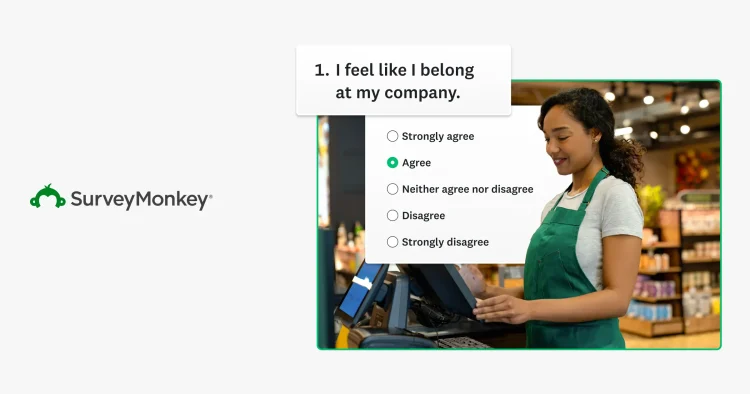Key findings:
- Four in ten small business owners (39%) are optimistic about the state of the economy in Trump’s first quarter, but inflation looms
- More than half (55%) of small business owners adhere to some form of DEI in their workplace
- Most small business owners (77%) are unaffected by a potential TikTok ban, but half (46%) support banning the popular Chinese-owned social media platform
- Sentiment towards recent mass deportation efforts are split among party lines
- Concern over tariffs also see a split between Democrat and Republican business owners
Four in ten small business owners (39%) are optimistic about the state of the economy in Trump’s first quarter, but inflation looms
Four in ten small business owners (39%) view the economy as ‘excellent’ or ‘good’, with optimism split along party lines: half (51%) of Democrat small business owners say the economy is currently good or excellent, twenty points higher than Republicans (31%). A similar percentage (36%) of small business owners also believe that inflation has reached a peak, while two in three (63%) believe prices will continue to rise. One in four (24%) also cite inflation as the biggest risk to their business currently, ahead of consumer demand (15%), supply chain disruptions (13%), and tariffs (10%).
More than half (55%) of small business owners adhere to some form of DEI in their workplace
Inclusive workplace policies, such as anti-discrimination or harassment policies, are the most popular DEI practice among small business owners, with four in ten (38%) adopting such policies for their workplace.
- 31% adopt inclusive or diverse hiring practices
- 27% engage with the local community
- 26% say they have an employee-driven workplace culture
- 20% have diversity training and education for employees
- 8% have employee resource groups (ERGs)
- 42% say they do not follow any DEI practices.
Among small business owners that do follow DEI practices, the majority cite a positive impact on their company:
- 65% say DEI practices have had a positive impact on the overall success of their business, compared with 26% who cite no impact or are unsure, and 6% who cite a negative impact
- 70% say DEI practices have had a positive impact on the their workplace culture
- 69% say DEI practices have had a positive impact on recruiting top talent
- 60% say DEI practices have had a positive impact on employee happiness
Most small business owners (77%) are unaffected by a potential TikTok ban, but half (46%) support banning the popular Chinese-owned social media platform
One in four (23%) small business owners are impacted by a potential TikTok ban, with 13% citing a negative impact, and 10% a positive impact. The majority (77%) cite no impact. Despite the limited impact of a TikTok ban, nearly half of small business owners (46%) support banning the social media app in the US. Concerns of foreign-owned tech companies operating domestically, however, extend beyond TikTok: three in four (75%) business owners express concern about international technology companies doing business in the US, with bipartisan support (83% R, 69% D).
Small business owners are split on their concern and support for the recent mass deportation efforts of undocumented individuals residing in the US, with diametrically opposing sentiment between Republican and Democrat business owners:
- 80% of Democrat small business owners are concerned about the deportation efforts and their impact on their business, while 19% are ‘not too concerned’ or ‘not concerned at all’. Only 9% ‘strongly or somewhat support’ Donald Trump’s enforcement of mass deportation efforts, and 88% ‘strongly or somewhat oppose’.
- 22% of Republican small business owners are ‘very or somewhat concerned’ about the deportation efforts and their impact on their business, while 78% are not concerned. 86% ‘strongly or somewhat support’ Donald Trump’s enforcement of mass deportation efforts, and 8% ‘strongly or somewhat oppose’.
While half of small businesses (51%) overall expect Donald Trump’s proposed tariffs to impact their business, Democrat small business owners are more than twice as likely than Republican business owners to expect their business to be impacted (76% vs. 31%). Only three in ten (28%) Republican business owners are concerned about tariffs impacting their business, compared to 86% of Democrat business owners.
Small Business Confidence starts off 2025 at 56, as small businesses balance with positive sentiment surrounding current business conditions, future business revenue, employment, and technological innovation, with mixed or negative sentiment surrounding government, trade, and immigration policy.
- 42% describe current business conditions as good, compared with 11% who think conditions are bad
- 52% expect business revenue to increase in the next 12 months, compared with 18% who expect revenue to decrease
- 28% expect to increase employment in the next 12 months, compared to 10% who expect to decrease the number of full time employees
- 35% expect government regulations in the next 12 months to have a positive impact on their business, compared with 38% who expect a negative impact
- 37% expect tax policy in the next 12 months to have a positive impact on their business, compared with 33% who expect a negative impact
- 24% expect trade policy in the next 12 months to have a positive impact on their business, compared with 43% who expect a negative impact
- 42% expect technological innovation in the next 12 months to have a positive impact on their business, compared with 13% who expect a negative impact
- 26% expect immigration policy in the next 12 months to have a positive impact on their business, compared with 28% who expect a negative impact
Small business owners who identify as Democrats drive negative sentiment, while Republicans drive positive sentiment (37 vs. 72). Confidence in President Trump starts off with 51% of small business owners approving and 49% disapproving of the way he is handling his job as president.
Weighting
Data for small business statistics have been weighted according to business and owner characteristics (industry, number of employees, geography, gender, and race) according to the 2022 Census Bureau’s Annual Business Survey (ABS).
Index calculation
The final small business confidence index (SBCI) is calculated according to the following formula:
Where A, B, C, D, E, F, G, H are responses to the following
questions, with values of 2 assigned to positive responses (Good, Increase, Positive effect), 1 assigned to middle values (Middling, Stay the same, No effect), and 0 assigned to negative values (Bad, Decrease, Negative effect).
A = Overall, would you describe current conditions for your business as good, middling or bad?
Good
Middling
Bad
B = In the next 12 months, do you expect your business’s revenue to increase, stay the same, or decrease?
Increase
Stay the same
Decrease
C = In the next 12 months, do you expect your business’s staff of full-time employees to increase, stay the same, or decrease?
Increase
Stay the same
Decrease
D = In the next 12 months, do you expect changes in government regulations to have a negative effect, no effect, or a positive effect on your business?
Negative effect
No effect
Positive effect
E = In the next 12 months, do you expect changes in tax policy to have a negative effect, no effect, or a positive effect on your business?
Negative effect
No effect
Positive effect
F = In the next 12 months, do you expect changes in trade policy to have a negative effect, no effect, or a positive effect on your business?
Negative effect
No effect
Positive effect
G = In the next 12 months, do you expect changes in technological innovation to have a negative effect, no effect, or a positive effect on your business?
Negative effect
No effect
Positive effect
H = In the next 12 months, do you expect changes in immigration policy to have a negative effect, no effect, or a positive effect on your business?
Negative effect
No effect
Positive effect
This quarter, less than 2% of respondents skipped one or more of the index questions A-H. In order to calculate an index, we impute these missing values by assigning them to the middle value for each question. These imputed values are only used for index calculation, not in any crosstabs or in the full banners.


